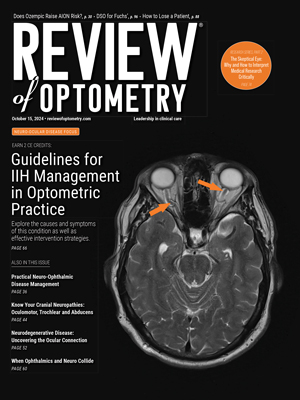Age-related macular degeneration (AMD) is the leading cause of irreversible blindness in older individuals in the Western world, and there are currently no therapies to halt disease progression. Studies, however, suggest that the commonly prescribed antidiabetic drug metformin is associated with decreased risk of several ocular diseases, including this one.
Hoping that the drug is able to lower patients’ chances of developing AMD, researchers from the University of Florida investigated the effect of metformin on AMD development in a retrospective review of 26,152 records of patients over age 55. They found that patients who had taken metformin had decreased odds of developing AMD, which suggests that the drug may have a therapeutic role in disease development or progression in those who are at risk.
This retrospective, case-control study used medical records from patients older than 55 who have visited a University of Florida health clinic. Three controls were matched for every AMD case. The team found that metformin use was associated with decreased odds of developing AMD, independently of the other covariates investigated, with an odds ratio of 0.58 and a 95% confidence interval. Other medications assessed were not associated with decreased odds of developing AMD.
The authors demurred from speculation about a potential mechanism of action. “This is a retrospective study and a causal relationship cannot be established,” they wrote in their paper. The study concludes that clinical trials should be conducted to prospectively investigate whether metformin has a protective effect in those at risk for developing AMD.
| Brown EE, Ball JD, Chen Z, et al. The common antidiabetic drug metformin reduces odds of developing age-related macular degeneration. Invest Ophthalmol Vis Sci. 2019;60(5):1470-7. |

